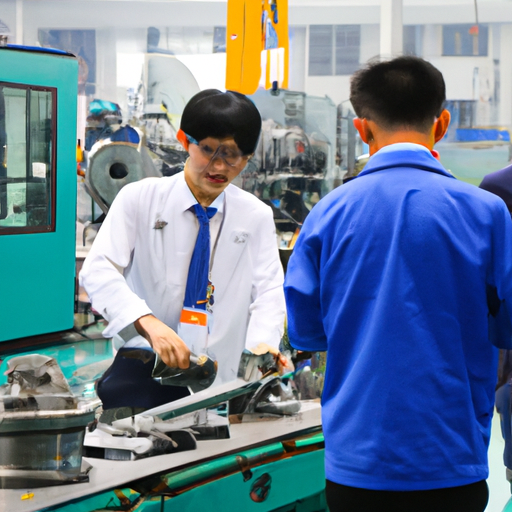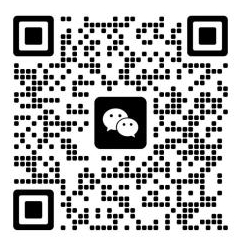1. Understand the basic principles and structure of resonators: When conducting product training, it is important to ensure that trainees have a clear understanding of the basic principles and structure of resonators. This includes the working principle, main components, and operation mode of resonators.

3. Master the tuning and maintenance techniques of resonators: Resonators need to be tuned and maintained during use to ensure normal operation. In product training, the tuning and maintenance techniques of resonators should be emphasized, including knowledge of frequency adjustment, tuning, and maintenance.
4. Practical operation exercises: To help trainees better grasp the use of resonators, practical operation exercises can be arranged. Through practical operation, trainees can gain a deeper understanding of the usage methods and precautions of resonators.
5. Answer questions and facilitate discussions: During product training, trainees may have various questions and concerns. It is important to promptly address trainees' questions and encourage discussions among trainees to promote knowledge sharing and enhance learning outcomes.
6. Regular evaluation and feedback: After product training, regular evaluation and feedback should be conducted to understand the learning progress and feedback from trainees. Adjustments to training content and methods should be made promptly to improve training effectiveness and trainee satisfaction.
1. Understand the basic principles and structure of resonators: When conducting product training, it is important to ensure that trainees have a clear understanding of the basic principles and structure of resonators. This includes the working principle, main components, and operation mode of resonators.

3. Master the tuning and maintenance techniques of resonators: Resonators need to be tuned and maintained during use to ensure normal operation. In product training, the tuning and maintenance techniques of resonators should be emphasized, including knowledge of frequency adjustment, tuning, and maintenance.
4. Practical operation exercises: To help trainees better grasp the use of resonators, practical operation exercises can be arranged. Through practical operation, trainees can gain a deeper understanding of the usage methods and precautions of resonators.
5. Answer questions and facilitate discussions: During product training, trainees may have various questions and concerns. It is important to promptly address trainees' questions and encourage discussions among trainees to promote knowledge sharing and enhance learning outcomes.
6. Regular evaluation and feedback: After product training, regular evaluation and feedback should be conducted to understand the learning progress and feedback from trainees. Adjustments to training content and methods should be made promptly to improve training effectiveness and trainee satisfaction.
1. Understand the basic principles and structure of resonators: When conducting product training, it is important to ensure that trainees have a clear understanding of the basic principles and structure of resonators. This includes the working principle, main components, and operation mode of resonators.

3. Master the tuning and maintenance techniques of resonators: Resonators need to be tuned and maintained during use to ensure normal operation. In product training, the tuning and maintenance techniques of resonators should be emphasized, including knowledge of frequency adjustment, tuning, and maintenance.
4. Practical operation exercises: To help trainees better grasp the use of resonators, practical operation exercises can be arranged. Through practical operation, trainees can gain a deeper understanding of the usage methods and precautions of resonators.
5. Answer questions and facilitate discussions: During product training, trainees may have various questions and concerns. It is important to promptly address trainees' questions and encourage discussions among trainees to promote knowledge sharing and enhance learning outcomes.
6. Regular evaluation and feedback: After product training, regular evaluation and feedback should be conducted to understand the learning progress and feedback from trainees. Adjustments to training content and methods should be made promptly to improve training effectiveness and trainee satisfaction.
1. Understand the basic principles and structure of resonators: When conducting product training, it is important to ensure that trainees have a clear understanding of the basic principles and structure of resonators. This includes the working principle, main components, and operation mode of resonators.

3. Master the tuning and maintenance techniques of resonators: Resonators need to be tuned and maintained during use to ensure normal operation. In product training, the tuning and maintenance techniques of resonators should be emphasized, including knowledge of frequency adjustment, tuning, and maintenance.
4. Practical operation exercises: To help trainees better grasp the use of resonators, practical operation exercises can be arranged. Through practical operation, trainees can gain a deeper understanding of the usage methods and precautions of resonators.
5. Answer questions and facilitate discussions: During product training, trainees may have various questions and concerns. It is important to promptly address trainees' questions and encourage discussions among trainees to promote knowledge sharing and enhance learning outcomes.
6. Regular evaluation and feedback: After product training, regular evaluation and feedback should be conducted to understand the learning progress and feedback from trainees. Adjustments to training content and methods should be made promptly to improve training effectiveness and trainee satisfaction.








